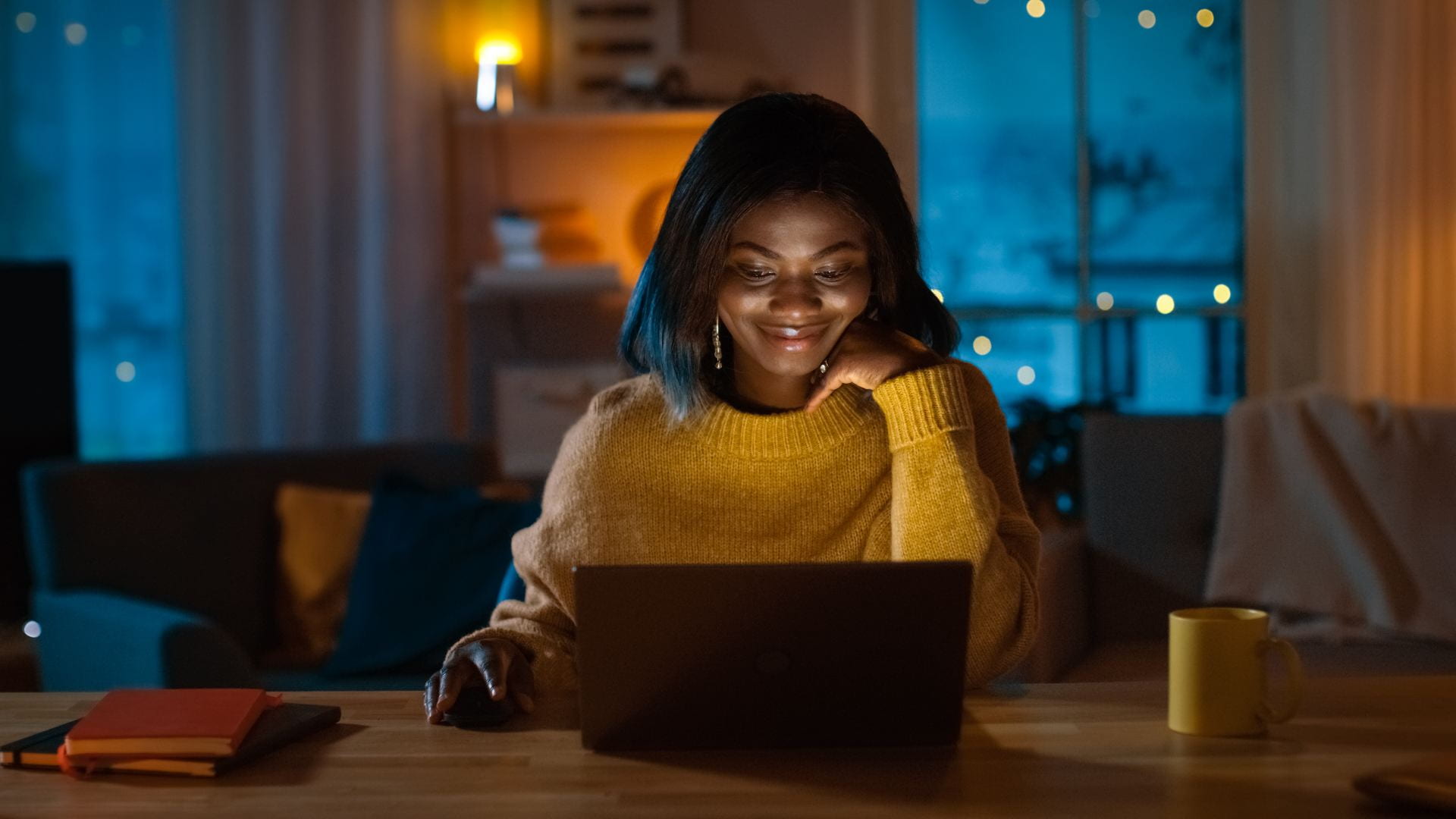
Portrait of a female wearing a warm sweater using her laptop while sitting at her home desk.
Many of us are spending more time viewing our computer screens and other digital devices, especially during the COVID-19 pandemic. Because of the increased viewing patterns, people are being exposed to more blue light emitted from these devices.
Blue light can penetrate into our eyes and has the potential to harm them. It passes through the cornea and lens to the retina, which may cause medical conditions such as dry eye, cataract, age-related macular degeneration (AMD), and sleep disturbance.¹
The retina is located in the back of the eye. It is a thin layer of light sensitive nerve tissue that lines the back wall. You can think of it as wallpaper. On the other hand, the cornea is the clear outer layer of your eye. It serves as a barrier against germs and dirt. It also helps protect you from some of the sun’s ultraviolet light.
Since too much exposure to blue light is linked to dry eye, cataract, age-related macular degeneration, and sleep problems, it is important to better understand these conditions.
Dry eye occurs when the eye does not produce tears properly. This condition can make it challenging for some people to use a computer or to read.
A cataract develops when the lens becomes cloudy. You may notice that you are having some trouble reading or driving at night. Later symptoms might include severe vision loss and blindness.
Age-related macular degeneration is a leading cause of vision loss in older adults. It affects the center of the visual field because of damage to the retina. Although you still may have peripheral (side) vision, you are likely to find it difficult to read or recognize faces.
Researchers also understand that blue light suppresses melatonin, a hormone found in our brain that helps us fall asleep at night. If you are exposed to blue light from your smartphone or laptop screen, you will become less sleepy. So, this can pose a problem for you at night, because it has a powerful effect on your sleep-wake internal body clock.
Methods to Manage Screen Time/Blue Light
What can you do to manage screen time and to control blue light damage? Here are four strategies you can implement today.
- Take protective measures when using blue light-related products, especially at night. For example, you could consider wearing blue light blocking glasses.
- Get blue light screen protectors for your computer screens, tablets, iPhones, and Android phones.
- Cut back on your screen time 2-3 hours before bedtime.
- Add a macular carotenoid supplement to your diet. We know that eye-friendly nutrients are important to reduce the risk of certain serious eye diseases. To help protect your eyes from the damaging effects of blue light and reduce your risk of macular degeneration, seek out a carotenoid formula that is clinically proven to effectively rebuild macular pigment.
Your vision is precious but often taken for granted. But if you learn to manage your screen time and the effects of blue light, you will be taking positive steps to protect your vision health.
Reference
1. Zhao ZC, Zhou Y, Tan G, Li J. Research progress about the effect and prevention of blue light on eyes. Int J Ophthalmol. 2018;11(12):1999-2003. Published 2018 Dec 18. doi:10.18240/ijo.2018.12.20